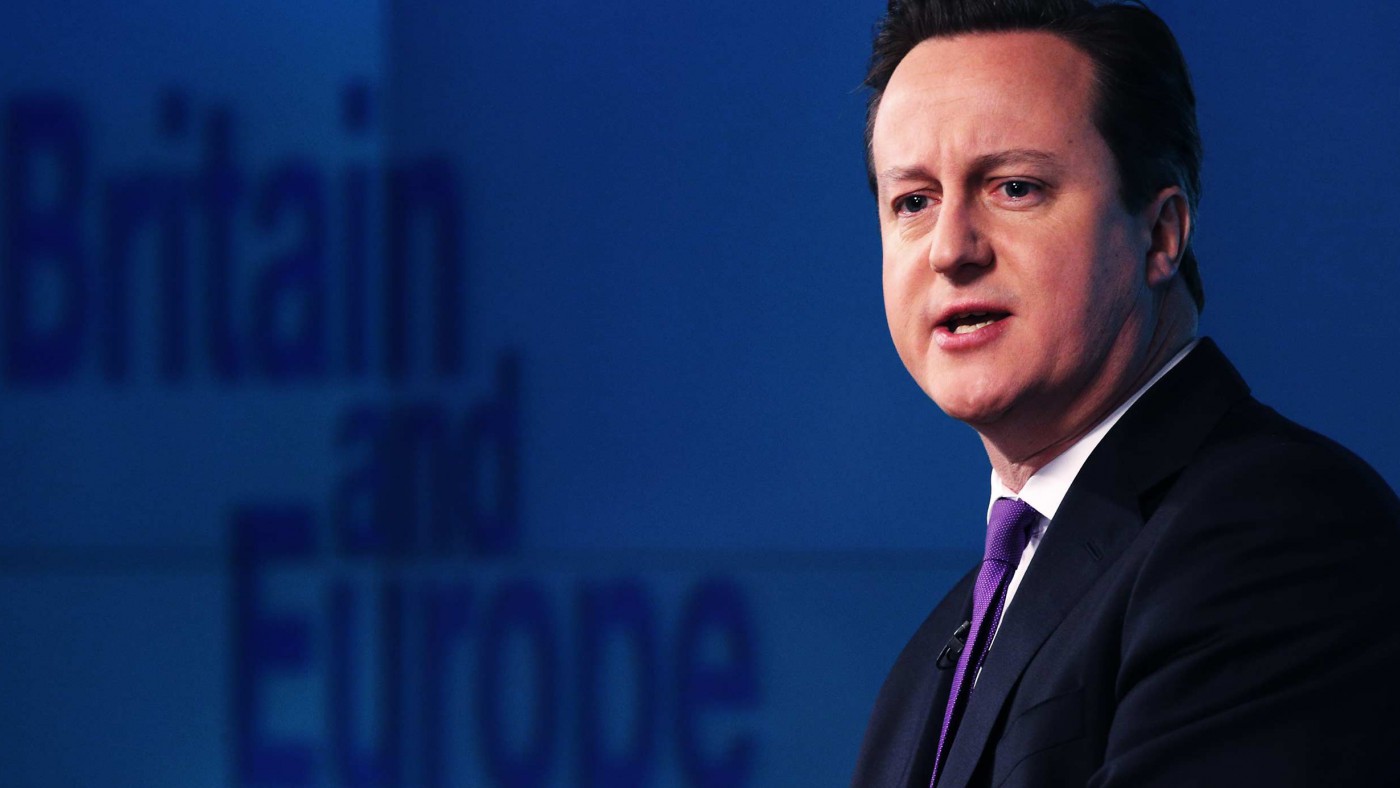While the members of Westminster press pack wait for the outcome of Jeremy Corbyn’s never-ending reshuffle, they can be reassured that it’s nice and warm here at home. Radio 4 is on, there’s a fire going, and, like many people, I’m not far away from having dinner. In the outside world, the Corbyn shuffle is not getting much attention. Think of it as a lame Labour version of football’s transfer deadline day, and there is something almost endearing about the refusal of Team Corbyn to play by the rules or provide briefings to waiting journalists.
There are other stories around, however, and one that is not getting much attention either (but will one day if David Cameron loses the looming EU referendum) is the question of the Tory leader’s position after any Out vote. He has now indicated that he would not feel compelled to resign if he lost the battle to keep the UK in the EU. Inevitably this provokes a snort of derision from his critics. At moments like this it is easy to say that “the Tory party will eat him alive”, or to source commentary from Cameron opponents who will probably tell you that he wouldn’t last five minutes.
This time, the Cameron critics may be wrong and guilty of falling for wish fulfilment. It is said that he would have to resign soon after, and I used to take it for granted that he would, but I am no longer convinced he has to. Here’s why:
1) From the moment of any Out vote (still the less likely outcome, but far from impossible) all attention will switch to the difficult negotiation on the UK’s arrangements with the depleted EU. You might say that Cameron’s track record on renegotiation is not up to much, and you would be right. But after Out it would be an entirely different proposition. The reality of Britain leaving would hit German car manufacturers and bankers on the continent, and a race would be on to protect trade (which is as much in German, Dutch, French, Italian and Spanish interests as it is in Britain’s interests.) Someone – the Prime Minister sounds like a good person to do this – will have to lead.
2) The Tory party would look pretty nuts plunging straight away into a leadership contest when a period of calm reflection and diplomacy is what the country will expect. If Cameron goes, Osborne goes too. Which leaves a race between Boris, May, Javid, representatives of the right such as Liam Fox and David Davis, and then a gaggle of people the voters have never heard of. With Jeremy Corbyn on the sidelines shouting. Think about it: a babble of voices arguing over what the negotiation stance should be, while the country and business looks on in horror and the EU can’t get hold of anyone in Whitehall on the telephone.
3) An Out vote, if it happens, is unlikely to be won by overwhelming margin. It would be close. The country would be split. Cameron could say – perfectly reasonably – to the voters: “Look, I advocated staying in the EU, although I had plenty of reservations about what the EU has become. It is imperative that the UK and the EU now come to an agreement, rather than our neighbours simply flinging us from the councils of the EU. They are perfectly entitled to do so, but it would be ill-advised. We need to get along. As you know, I am not standing at the next general election, but before then I do want a shot at constructing a trading relationship between a self-governing UK and the EU. I’m forming a cross party group – from all parties, big and small, the Tories, Labour, Lib Dems, UKIP and SNP – to advise me and I will report regularly to Parliament on progress. If these efforts are unsuccessful, and in six months time there is a majority in the Commons in favour of having someone else lead negotiations with our neighbours, then so be it. Let me try first.”
His survival in such circumstances depends on Cameron not throwing absolutely everything at staying in during the campaign, which will be difficult to pull off, I admit. Campaigns have a habit of forcing leaders into taking uncompromising positions. But if he can not so much sit on the fence, as rather keep one foot on the floor and leave the acrimony to the Leave and Remain campaigns, he could emerge as the only person capable of taking matters forwards towards a new dispensation. Stranger things have happened.


